Do You Have to Have Mortgage Insurance?
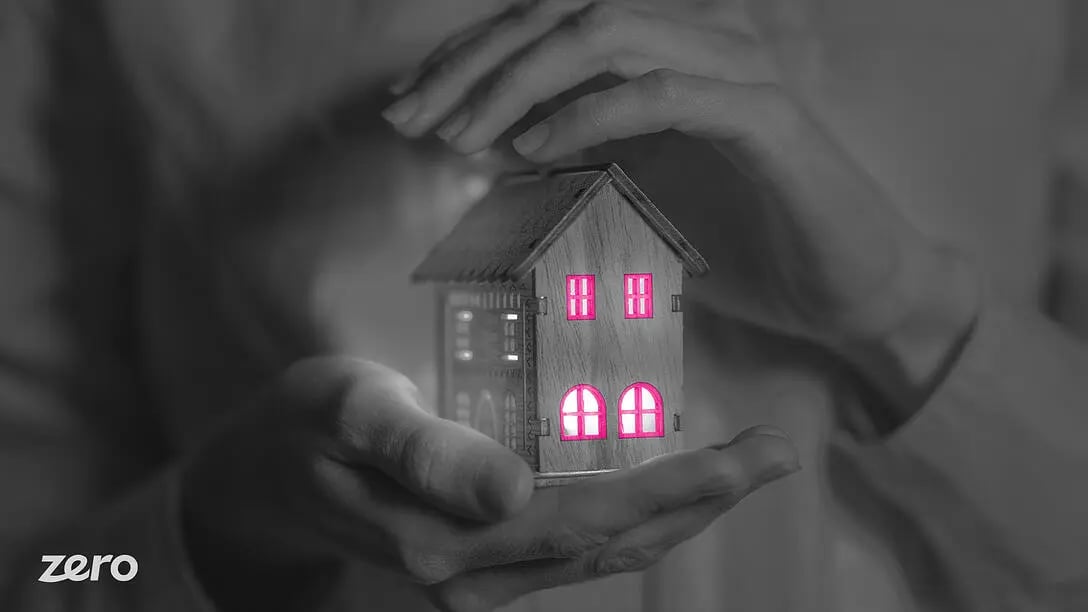
Private mortgage insurance is something millions of homeowners pay for each year. However, this type of insurance does not protect the homeowner.
Mortgage insurance is designed to protect the lender. If the homeowner were to default on the loan, the mortgage insurance would pay off the loan to the lender, but the homeowner would still lose their home.
So, is mortgage insurance a requirement? Believe it or not, mortgage insurance is only required for specific types of mortgages.
What is Mortgage Insurance?
If you don’t have a lot of money saved up to put towards a home, you can still secure a mortgage. In fact, with an FHA mortgage, you can qualify by putting down 3.5% of the home's value in the form of a down payment, so long as you meet the current requirements.
However, the less money you put down on a home, the riskier lenders tend to consider you to be. To make a lender comfortable with lending you money, they may require you to purchase mortgage insurance. This insurance is often referred to as private mortgage insurance, or PMI.
Even though you’ll be paying for mortgage insurance on a monthly basis, you are not the beneficiary. You’ll be paying this expense on behalf of the bank, making the bank the beneficiary.
If you default on your loan, you will still lose your house. However, the bank will receive the money they are due thanks to the mortgage insurance.
How Much Does Mortgage Insurance Cost?
Unfortunately, there is not a one-size-fits-all approach to mortgage insurance. Your monthly mortgage insurance payment will depend on how much money you put down on your home and what type of mortgage you originally used to finance your home.
For example, FHA loans have a different PMI rate compared to conventional mortgages. On average, mortgage insurance will cost you anywhere from 0.35% to 2.25% of your loan amount.
Pros and Cons of Mortgage Insurance
Let’s review the pros and cons of mortgage insurance.
Pros
By paying mortgage insurance, a homeowner can likely purchase a home with a less substantial down payment. For example, saving up for a 20% down payment on a $300,000 home is difficult, whereas saving up for a 3.5% down payment on the same home is probably easier.
If there wasn’t mortgage insurance, banks would not likely be comfortable lending money to a homebuyer who just puts down a 3.5% down payment. In this way, mortgage insurance has helped people secure loans that they previously would not qualify for.
Cons
Mortgage insurance does not protect the homeowner, it protects the lender. Depending on the type of loan you purchased, mortgage insurance can be with you for the life of the loan.
This can add up to a great deal of money, and again, the homeowner does not get the protection. Mortgage insurance takes money out of your pocket each month, increasing the cost of owning a home.
Needless to say, most people would prefer to save $100-$200 per month, instead of paying for insurance that does not protect them.
Do Conventional Mortgage Loans Require Insurance?
Conventional mortgages do not always require mortgage insurance. In fact, you’ll just pay PMI on a conventional mortgage if your down payment isn’t at least 20%. If your down payment is less than 20%, you will be paying mortgage insurance on a conventional loan.
If you are financing via a conventional mortgage and do in fact need PMI, you can request the lender drops the PMI once you reach 20% equity in your home.
What About FHA Loans?
FHA loans require mortgage insurance. Generally speaking, an FHA loan is used in the following situations:
- The homeowner does not have the best financial picture, such as a low credit score.
- The home buyer does not have enough money to meet a conventional mortgage requirement.
- The home buyer is a first time home buyer, and just starting out professionally.
FHA loans are guaranteed by the United States Government, and require mortgage insurance in case the homeowner defaults on their loan
If you are in an FHA loan, you can always refinance to a conventional loan once you build equity in your home. By refinancing your mortgage you may be able to save quite a bit of money on mortgage insurance.
What About VA Loans?
VA loans do not require PMI. This is one of the greatest benefits of a VA loan. The government still backs VA loans, but as a thank you to our veterans, the government and lenders do not require the individual or family to carry mortgage insurance.
How to Avoid Paying for Mortgage Insurance
There are several ways to avoid paying for mortgage insurance. The most common options include:
- Be prepared to put down a down payment of 20% or more.
- Consider using a piggyback mortgage. This is more challenging to qualify for, but is essentially a second mortgage. Your first mortgage covers 80% of the home's value, the second mortgage covers 10% of the home's value, and you are required to put down 10%
Our Mortgage Learning Center features blogs on a wide range of mortgage and refinancing topics.
Know Your Options
Without question, mortgage insurance has helped millions of people qualify for homes they otherwise would not be able to. However, beyond the initial qualification, mortgage insurance feels more like a financial drain than a benefit.
Remember, PMI does not protect the homeowner, but rather protects the bank if the homeowner defaults on their mortgage. PMI is a requirement for specific loans, but not all of them. Be sure to review all the various loan options available to you before deciding which loan is right for you.
Take the First Step Toward a New Home!
This page last updated: October 11, 2022
Read more on this topic below.

When you buy a house and start making mortgage payments, your payment consists of four different components, known...

If you have gone through the pre-approval process but need to take a deeper dive into how much house to buy,...

The vast majority of mortgage loans require you to put down a certain percentage of the selling price upfront....

Whether you’re a first-time buyer or you’ve purchased a home before, you’ve likely heard of a homeowner’s association....

People buy their homes for a number of reasons. Affordability, stability, and comfort are some of the most...

Mortgage brokers play an integral and active role in the mortgage market, offering customers a service not made...
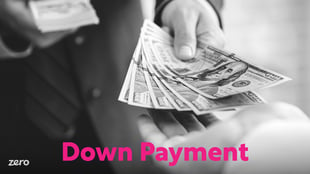
There’s a lot of expenses to keep in mind when you’re thinking about buying a home. Between the price of the home, property taxes, your mortgage...

Conventional loans are mortgages offered by private lenders, banks, and institutions that are not backed by the government. Unlike FHA, USDA,...

Some homebuyers refuse to purchase a property if it is part of a property owner association. On the...

Research indicates that 58% of homeowners in HOA communities and single-family homes pay an average monthly fee...

When you first set out to buy a home, it can feel like you’re taking an exam you forgot to study for. You have to make quick...
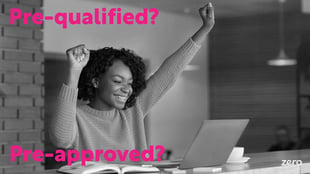
When looking to refinance or buy a house, the pre-qualified vs pre-approved mortgage debate can be...

A mortgage is often the largest monthly expense homeowners pay. The thought of reducing the amount...
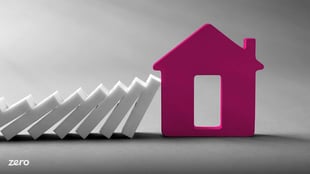
A home doesn’t just fall into foreclosure status. There are stages and processes that take place behind the scenes before...

It’s likely that your mortgage loan will be the largest loan you have during your lifetime. Mortgages are not a one size...

Refinancing your home can save you thousands of dollars per year! When you extrapolate that savings over...

For many people, owning a home is part of the American dream. To make this dream a reality, most people will take out a...

Whenever you’re looking to buy a house, you’ll quickly realize there are a lot of fees associated with obtaining a mortgage....
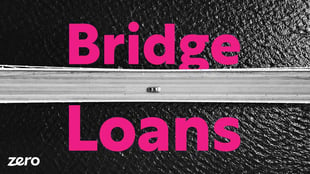
A bridge loan is a short-term loan a borrower may use while a more long-term financing contract is finalized. Bridge...

A loan estimate is crucial to obtain when looking for a loan. This estimate not only gives you the details of a mortgage but also compares offers...

There are many moving parts and various people you’ll deal with throughout the homebuying process....

If you’re looking to buy a house, and do not have a mountain of cash saved up, you’ll need to consider getting a mortgage to help you finance this...

If you find a property that you’re highly interested in buying but are concerned that the seller might choose...
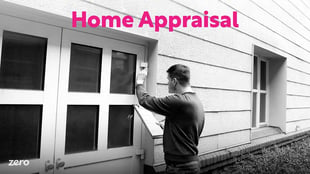
Buying a home? You’ll likely need to get it appraised before you receive the clear to close. If you’re wondering...

If you’re an active service member, a veteran, or the surviving spouse of a veteran, and you want to ...

Innovative and cost-effective home improvement ideas are all over the internet, especially when it comes to...

There’s no doubt, COVID-19 changed the world in countless ways and took us all by surprise. From an...

Whenever you are borrowing money, whether it’s for a new mortgage, a refinance, credit card, or car loan, you’ll hear...

If you’re new to buying a home, you probably have quickly realized the overwhelming amount of options there...

If you’ve already gone through the lengthy process of writing offers, securing financing, and arranging inspections for your...

One of the most important steps to buying a home is deciding on a mortgage loan and deciding on a loan involves settling on a good...

First time home buyers are often surprised when they learn about all of the expenses that are associated with ...

Purchasing real estate is not as simple as finding the right home, submitting an offer, and signing the closing paperwork; many...
